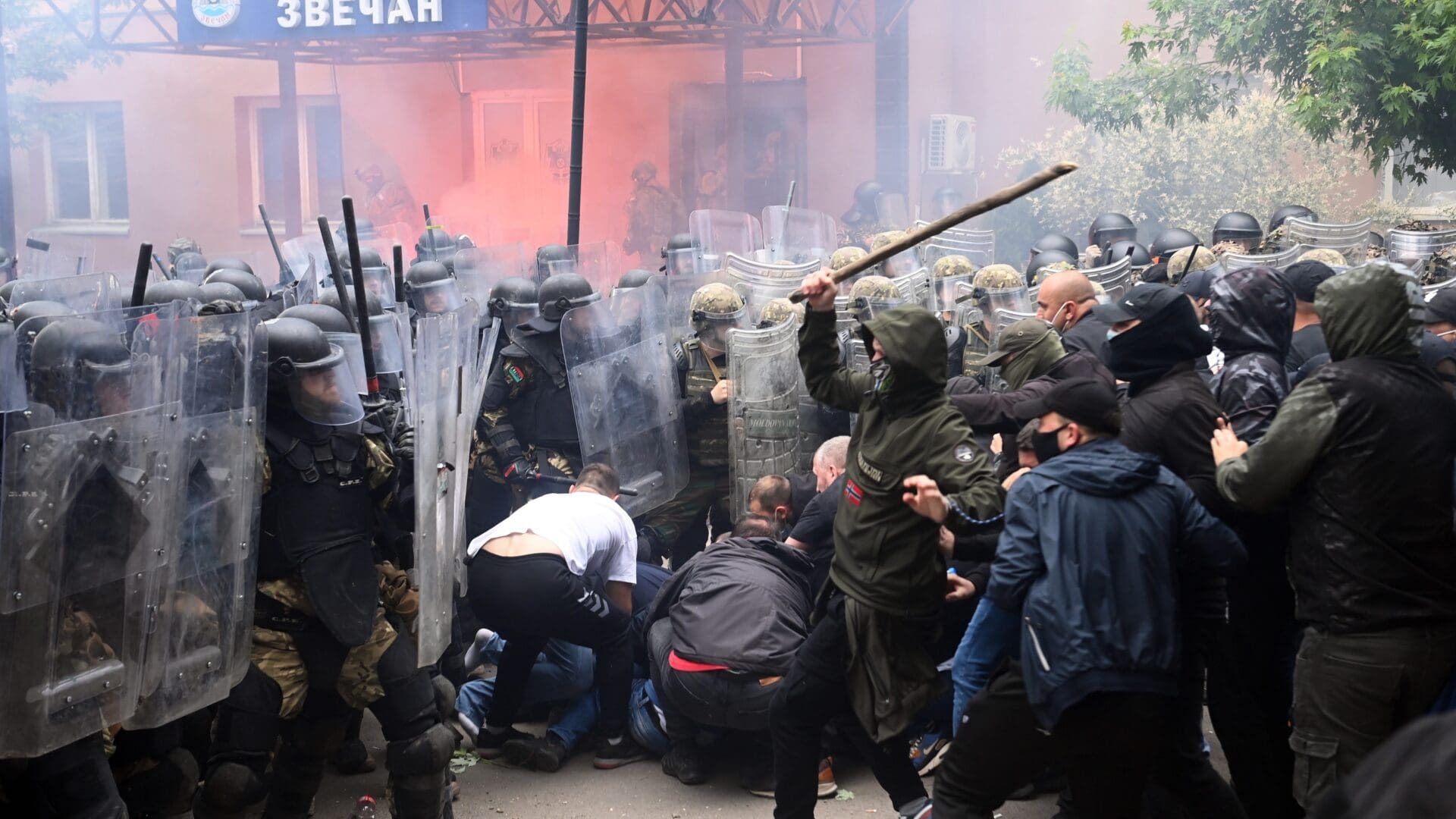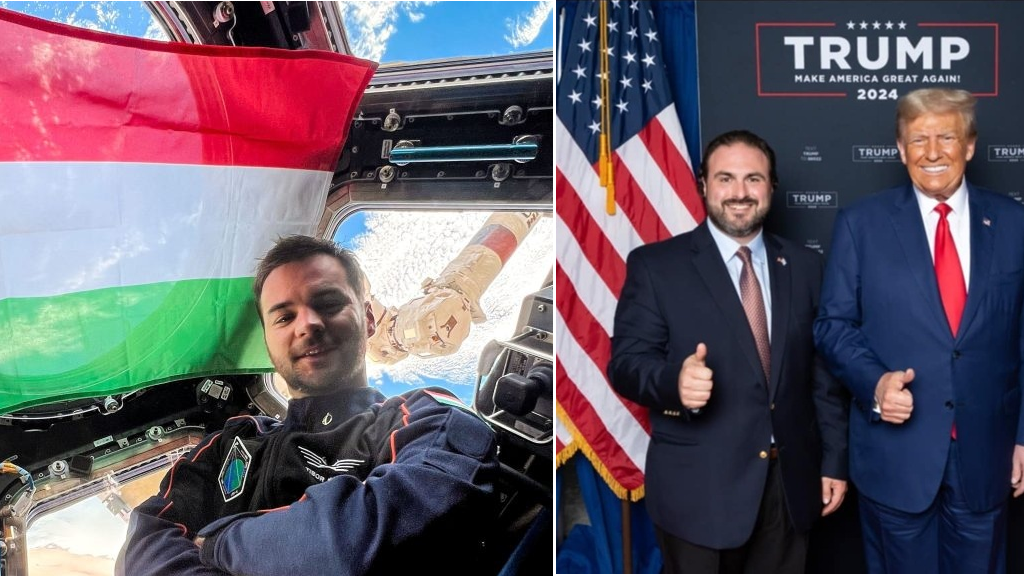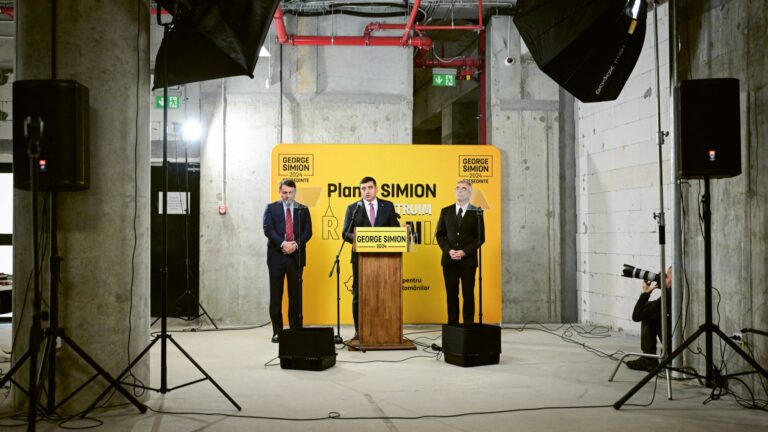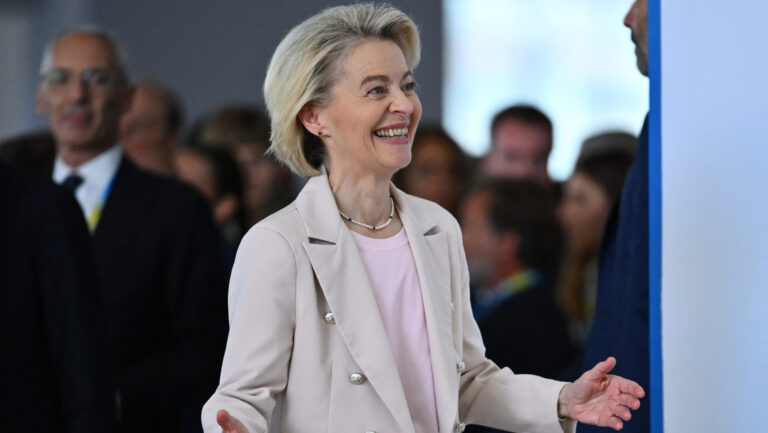Since last week, tensions have been rising in Kosovo between ethnic Serbs and Albanians following disputed early elections in various municipalities. Serbia has ordered its military to its southern border, while Serb protesters took to the streets and clashed with security forces. In the town of Zvečan, more than twenty Hungarian soldiers, deployed within NATO KFOR, were also injured. The violence has been condemned by both the US and the EU, and NATO has decided to increase the size of its contingent in Kosovo to halt further escalation.
The History of a Protracted Conflict
In 1998, during the Yugoslav Wars that preceded the break-up of Yugoslavia, fierce armed clashes took place between Serbian security forces and the Kosovo Liberation Army (UÇK), fighting for Kosovo’s independence. After the NATO air mission between March and June 1999, the bombing of several Serbian targets made former Yugoslav President Slobodan Milošević withdrew his troops from Kosovo and triggered some 200,000 Serbs to flee the area.
Milošević was later tried at the International Criminal Tribunal in Hague for crimes committed by Serbs during the war, including a campaign of terror and violence against Kosovo’s Albanian population. However, no verdict was reached in his case before his death in 2006.
Along with NATO’s air mission, a multinational peacekeeping force was established on 12 June 1999 under UN Security Council Resolution 1244 and deployed in Kosovo under NATO command. KFOR (Kosovo Forces) is tasked with maintaining security and order in the region at. In 1999, 50,000 troops from 39 states served in KFOR; currently its 3,800 troops stationed in the area are provided by 27 countries, including Hungary, under NATO’s flag. In addition to the KFOR mission, the EU has also been operating a police and justice unit in Kosovo, EULEX, since 2008. EULEX took over from the former UN mission and currently has more than 400 personnel.
Meanwhile, the Albanian-majority province of Kosovo, with its capital Pristina, unilaterally declared independence from Serbia in February 2008. Although the secession has since been recognised by more than a hundred UN member states, including Hungary, Kosovo is not formally recognised as a separate country by the international organisation. The permanent UNSC members China and Russia do not recognise an independent Kosovo, along with EU Member States Cyprus, Greece, Romania, Slovakia, and Spain, mainly due to their own, similarly ethnicity-based, conflicts.
Kosovo is currently home to some 100,000 ethnic Serbs, 50,000 of whom live in the northern part of Kosovo bordering Serbia, with the centre of North Mitrovica. The situation between the Albanian majority and the Serb minority has been tense ever since Kosovo became independent, with regular confrontations, but the current events, in which Hungarian and Italian KFOR soldiers have been injured, are one of the most serious in years.
What Is Happening Now Exactly?
The background to the current events is Pristina’s decision last year to issue exit and entry documents for Serbs at the Kosovo border, and to require those with Serbian car number plates to apply for a temporary Kosovo plate. As we explained earlier in a Hungarian Conservative article, 100,000 local Serbs in Kosovo use Belgrade-issued car number plates that Pristina considers illegal. Kosovo has threatened to impose fines on these drivers. The issue of the number plates has been discussed between Pristina and Belgrade since 2011 in an EU-led dialogue, and was recently settled through EU mediation.
‘Serbia will stop issuing license plates with Kosovo cities’ denominations, Kosovo will cease any further actions related to re-registration of vehicles,’ said High Representative of the Union for Foreign Affairs and Security Policy Josep Borrell at the time.
However, many people in public institutions, including municipal councillors, judges, prosecutors and hundreds of police officers, have quit in protest against the new provision. Following the resignations of Serb police officers, Pristina deployed Albanian police officers to northern Kosovo and called for by-elections in four municipalities in the north. The elections were postponed until April this year while promising talks between Serbian President Aleksander Vučić and Albanian Prime Minister Albin Kurti were held under a settlement plan, known as the ‘Franco-German proposal’, backed by the United States and the European Union as well.
On 7 April, however, Vučić announced that, contrary to promises, the failure to form an alliance of Serb municipalities in northern Kosovo meant that the Serbian List, the leading party of Kosovo Serbs, closely allied with the Serbian ruling party (SNS), would not participate in the early municipal elections. Due to the boycott, Kosovo Serbs also stayed away from the polls held on 23 May, resulting in a turnout of 3.47 percent, with Albanian political party candidates winning in all four districts. Although the elections were described as legitimate by Pristina, neither Belgrade nor the local Serbs recognised the new mayors, citing the low turnout.
Protests by the Kosovo Serbs began on 26 May, when the newly elected ethnic Albanian mayors of Leposavić, Zvečan and Zubin Potok tried to take office. Tensions were exacerbated by the fact that the Serbian army was put on high alert and ordered to the Kosovo border in response to the unrest. Local Serbs clashed with Kosovo police who were trying to help the newly elected Albanian mayors take office, using riot shields and tear gas against protesters.
Why are There Hungarian Troops in Kosovo?
Due to the fierce clashes, KFOR peacekeeping forces had to be deployed in the town of Zvečan. Serbian demonstrators clashed with Italian and Hungarian KFOR soldiers, who were attacked with sticks, stones, Molotov cocktails and even with home-made explosive devices. In the attack, 11 Italian and, according to Hungarian Defence Minister Kristóf Szalay-Bobrovniczky, altogether 27 Hungarian soldiers were injured during the clashes, seven of whom seriously. KFOR reported that the majority of the injured suffered burns and broken bones from improvised explosive devices (IEDs) and three Hungarian soldiers were shot. On the evening of 29 May, an Airbus A319 aircraft of the Hungarian Defence Forces, specially adapted for medical care, was dispatched to the scene.
‘Despite their injuries, the Hungarian soldiers have shown brave commitment, and many of those who were able to do so have already returned to their posts,’ the Hungarian defence minister said. He reiterated that the stability of the Western Balkans is very important to Hungary, which is why it is present in the region not only diplomatically and economically, but also militarily in the framework of the KFOR mission. The mission is currently under Italian command, but was formerly commanded by Hungarian Major General Ferenc Kajári.
In January 2023, Kajári had the following to say to 24.hu about the Hungarian involvement:
‘The Hungarian Defence Forces have been present in KFOR since 1999, and for about ten years the so-called Guard and Security Battalion was the backbone of our activities. After a transition period of a few years, we started to play a role in the KFOR Combat Reserve Battalion, which at that time was under Portuguese command with a Portuguese and a Hungarian company. In 2017, Lisbon withdrew, and the Hungarian government made a commitment to NATO that we would take over the whole battalion, securing another company. It is still the backbone of the Hungarian contribution, which is a contingent of nearly 400 troops. This organisation reports directly to the KFOR commander.’
After their arrival in Hungary, President of the Republic Katalin Novak, paid a visit to the hospital where the injured Hungarian soldiers are treated. ‘As the Commander-in-Chief of the Hungarian Defence Forces, I wish a speedy recovery to all the soldiers who were injured in Kosovo while serving with the NATO peacekeeping force...,’ Katalin Novák said in a statement.
Katalin Novák on Twitter: "This morning I visited the #Hungarian soldiers in the hospital who were injured while serving the #Kosovo peacekeeping force @NATO_KFOR. As the Commander-in-Chief of the 🇭🇺 army, I personally thanked them for their service and wished them a speedy recovery. pic.twitter.com/sjkaVO8zWL / Twitter"
This morning I visited the #Hungarian soldiers in the hospital who were injured while serving the #Kosovo peacekeeping force @NATO_KFOR. As the Commander-in-Chief of the 🇭🇺 army, I personally thanked them for their service and wished them a speedy recovery. pic.twitter.com/sjkaVO8zWL
As several media reports and commentators remarked, the Hungarian government has reacted with surprising reservedness to the violence against the Hungarian peacekeepers. This is most likely due to the fact that Hungary’s relations with Serbia have been exceptionally friendly and close, with Budapest being one of the staunchest allies of Serbia in terms of the Balkans country’s European integration, while Serbia has exemplary policies regarding the ethnic Hungarian community living within its borders.
Hungarian political daily paper Magyar Nemzet interviewed the commander of the 28th rotation of the Hungarian KFOR soldiers who took part in the crowd-control operation. The Lieutenant Colonel’s first-hand experiences about the clashes and the dramatic scenes that unfolded can be read in English as well.
What’s Next?
NATO has issued a statement condemning the unprovoked attack on KFOR forces, and Secretary General Jens Stoltenberg has announced that 700 more troops will be sent to Kosovo and another battalion will be put on high alert. No information is yet available on whether the Hungarian contingent will be increased.
In the meantime, Serbs hostile to the Kosovo leadership have announced another demonstration in the following days. In the wake of the events and to prevent a spiral of violence, Kosovo President Vyacheslav Osmani is willing to hold new local elections in the troubled northern part of the country. Osmani made remarks to that effect after talks with Serbian President Aleksandar Vucic, French President Emmanuel Macron, German Chancellor Olaf Scholz and European Union High Representative for Foreign Affairs and Security Policy Josep Borrell, held on the sidelines of the European Political Community Summit in Moldova. Although there is only a remote chance of a new war breaking out in the region, tensions will definitely continue to characterize the Balkan 'powder keg'.








